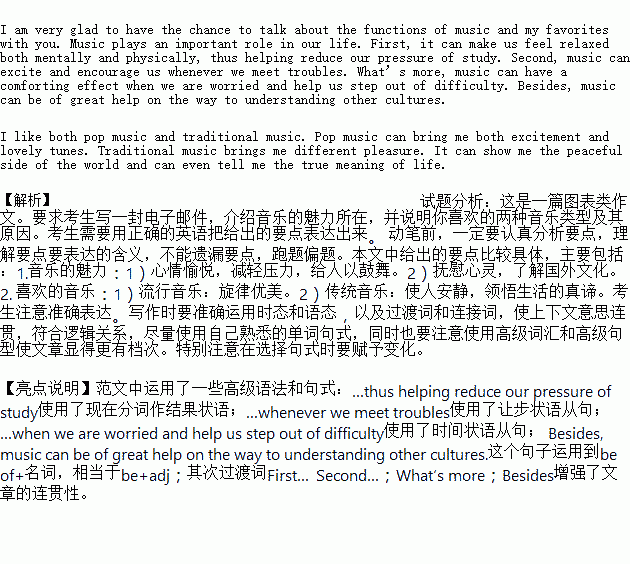题目内容
假定你是李华,请给你的笔友Martin写一封电子邮件,介绍音乐的魅力所在,并说明你喜欢的两种音乐类型及其原因。
音乐的魅力 | 1.心情愉悦,减轻压力,给人以鼓舞。 |
2.抚慰心灵,了解国外文化。 | |
喜欢的音乐 | 1.流行音乐:旋律优美。 |
2.传统音乐:使人安静,领悟生活的真谛。 |
注意:1.词数100左右;
2.为使行文连贯,可适当增加内容;
3.参考词汇:tune 曲调。
____________________________________________________________________________________________
____________________________________________________________________________________________
____________________________________________________________________________________________
____________________________________________________________________________________________
____________________________________________________________________________________________
____________________________________________________________________________________________
_____________________________________________________________________
 阅读快车系列答案
阅读快车系列答案

 omic times are focusing on improving their outer beauty, though at a discount price.
omic times are focusing on improving their outer beauty, though at a discount price. ght. And I wouldn’t have then, only I sent up this cotton waste and oil from the engine-room this afternoon for a girl upstairs who had her hand burned with a smoothing-iron. I’ve been firing the engine in that laundry for the last few weeks.”
ght. And I wouldn’t have then, only I sent up this cotton waste and oil from the engine-room this afternoon for a girl upstairs who had her hand burned with a smoothing-iron. I’ve been firing the engine in that laundry for the last few weeks.”